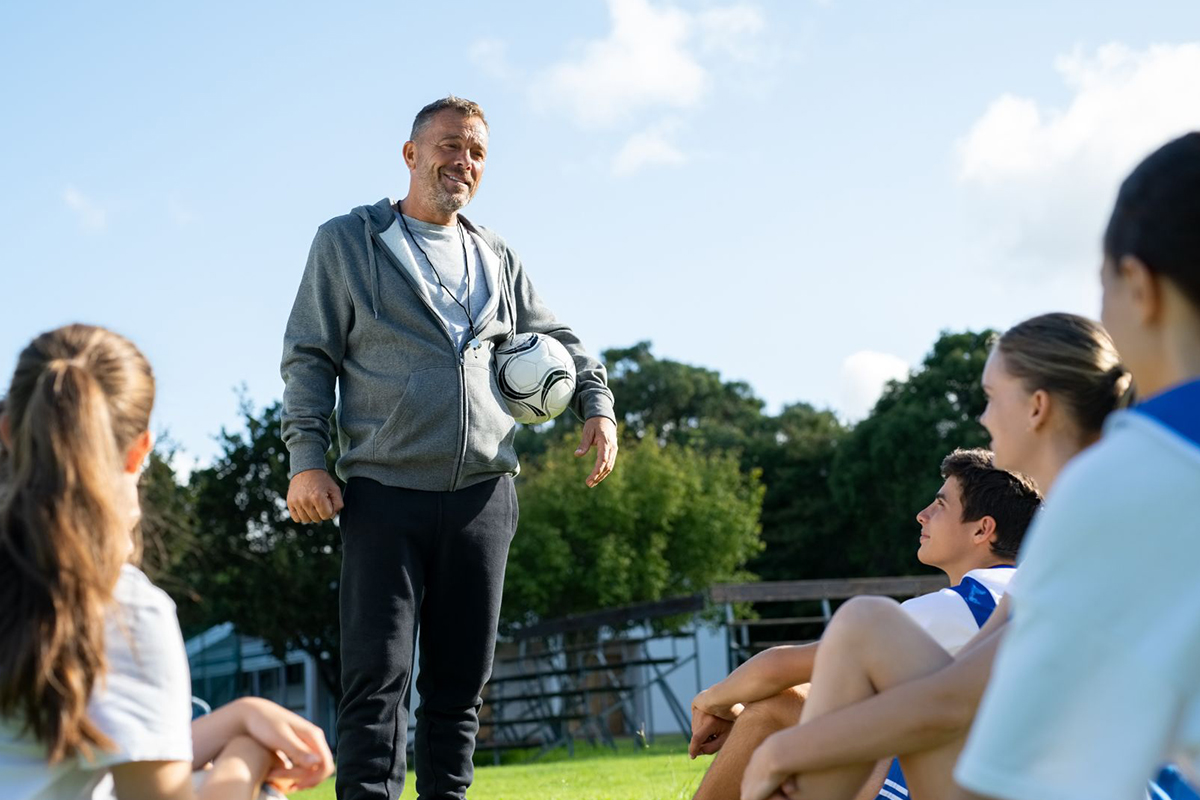For student-athletes, the road to college is paved not only with practices and tournaments but also with highlight reels, academic benchmarks, and strategic outreach. While talent and dedication are critical, the college recruitment process can be overwhelming without proper guidance, especially for teens navigating it for the first time.
This is where parents play a pivotal role. More than just cheerleaders, parents can be advocates, organizers, and supporters who help their teens present themselves in the best possible light to college recruiters. The process is increasingly competitive and digitally driven, so knowing how to navigate it effectively can make all the difference.
With the right strategies, parents can empower their teens to stand out both athletically and academically, and position them for success in college and beyond.
Understand the Recruiting Timeline
Recruitment starts earlier than most families expect. In many sports, coaches begin identifying prospects as early as middle school, with official communication beginning in high school. The NCAA outlines contact timelines and eligibility rules that vary by sport, so understanding these benchmarks is key.
Parents should help their teen map out a timeline that includes key athletic milestones, academic benchmarks, and NCAA compliance checkpoints. This roadmap keeps everyone aligned and ensures no critical deadlines are missed whether it’s registering with the NCAA Eligibility Center or preparing for standardized tests.
Encourage Strong Academics
Academic performance is often the deciding factor in recruitment. A student-athlete with strong grades is more likely to receive interest, financial aid, and roster offers. Schools want reliable, well-rounded individuals who can balance sports with coursework.
Parents can support academic excellence by helping teens establish strong study habits, seek tutoring when needed, and maintain a realistic balance between training and schoolwork. Many recruiters use GPA as a filter before even looking at an athlete’s highlights so academics must remain a priority.
Additionally, understanding the NAIA and NCAA eligibility standards ensures your teen is meeting academic requirements across potential divisions and schools.
Build a Strong Online Athletic Presence
College coaches often rely on digital platforms to scout potential recruits. Parents can help their teens build a professional online profile using platforms like Hudl, CaptainU, or NCSA to showcase game footage, statistics, awards, and personal bios.
Encourage your teen to upload high-quality highlight videos, update stats regularly, and write a short, confident bio. Keeping it professional and organized signals maturity and attention to detail qualities that impress recruiters.
Parents can also help manage email outreach, ensuring coaches receive direct links to these profiles along with introductions and academic information.
Help Craft Communication with Coaches
Many teens feel unsure about what to say when emailing or calling a college coach. Parents can assist by helping brainstorm introductory messages, reviewing for tone and grammar, and encouraging respectful, proactive follow-up.
While it’s important for communication to come directly from the student, behind-the-scenes guidance ensures it is polished and professional. Help your teen track correspondence, responses, and next steps using a shared spreadsheet or tracker to stay organized throughout the process.
Attend Recruitment Events Together
Showcases, ID camps, and summer tournaments are often where coaches scout talent in person. Parents can help identify relevant events, manage registrations, and arrange travel. Attending these events together allows parents to provide logistical support while also showing moral encouragement.
These events are also valuable for networking with coaches, other families, and even admissions staff. Be sure your teen brings printed copies of their résumé, transcripts, and a highlight reel link so they are ready for any opportunity.
Support Video Production and Editing
A well-crafted highlight video is essential in today’s digital-first recruitment process. Parents can help by recording games, organizing footage, and investing in editing tools or services that produce clean, focused reels.
Make sure the video leads with your teen’s best moments college coaches often make decisions within the first 60 seconds. Add labels that indicate jersey number, position, and play description for clarity. Keep it short (3–5 minutes) and ensure that all files are optimized for sharing and mobile viewing.
Maintain Perspective and Wellbeing
College recruitment can be emotionally intense. Parents should act as a stabilizing presence, reminding teens that recruitment is just one piece of their journey. Rejection from one program doesn’t diminish the athlete’s worth or potential.
Encourage your teen to stay mentally healthy and grounded, balancing goals with enjoyment of the sport itself. Remind them of the bigger picture: sports are a tool for development, not just a destination. Keeping expectations realistic while staying optimistic will help your teen remain resilient and motivated.
Explore a Wide Range of Options
While many student-athletes dream of Division I, incredible opportunities also exist at the Division II, Division III, and NAIA levels. Some schools may offer better academic fits, more playing time, or better scholarship packages even if they aren’t part of the top-tier sports programs.
Help your teen research a diverse range of schools, weighing both athletic and academic priorities. Consider location, class size, culture, and coaching staff. Keep an open mind, and encourage your teen to do the same, sometimes the best opportunity is one you hadn’t initially considered.
Understand Financial Aid and Scholarships
Not all athletic scholarships cover full tuition, and some schools offer academic or merit-based aid instead. Learn the financial aid structures of your target schools early. Use tools like the Net Price Calculator Center to estimate costs and aid eligibility.
Parents can guide teens through the financial aid process, helping gather tax documents, complete FAFSA forms, and explore scholarship databases. Being financially prepared increases flexibility and reduces stress when decisions need to be made.
Use Coaching, Tutoring, and Academic Support as a Competitive Advantage
Academic tutoring and executive function coaching can make a noticeable difference during the recruitment process. Students juggling training and school often benefit from structure, time management, and study strategies that tutoring can provide.
Programs like Alliance Tutoring’s executive function coaching help student-athletes maintain academic excellence, reduce overwhelm, and meet key deadlines during their recruiting journey. These skills matter not just for applications, but for long-term success.
Alliance Tutoring Provides Academic Clarity in a Competitive Space
College sports recruitment can feel like a maze, but with the right planning and perspective, families can navigate it successfully. From building athletic profiles to tracking correspondence and maintaining strong grades, parents are essential partners in the process.
Ultimately, what sets a student-athlete apart isn’t just raw talent, it’s the ability to stay organized, communicate clearly, and manage academics with consistency. These are the attributes that earn offers, scholarships, and trust from coaches.
Alliance Tutoring provides personalized academic coaching and structure to help student-athletes balance their responsibilities and present their best selves to college programs. Whether it’s strengthening grades, organizing application timelines, or developing executive function skills, Alliance Tutoring provides the steady academic support parents and teens need during the demanding recruitment journey.






